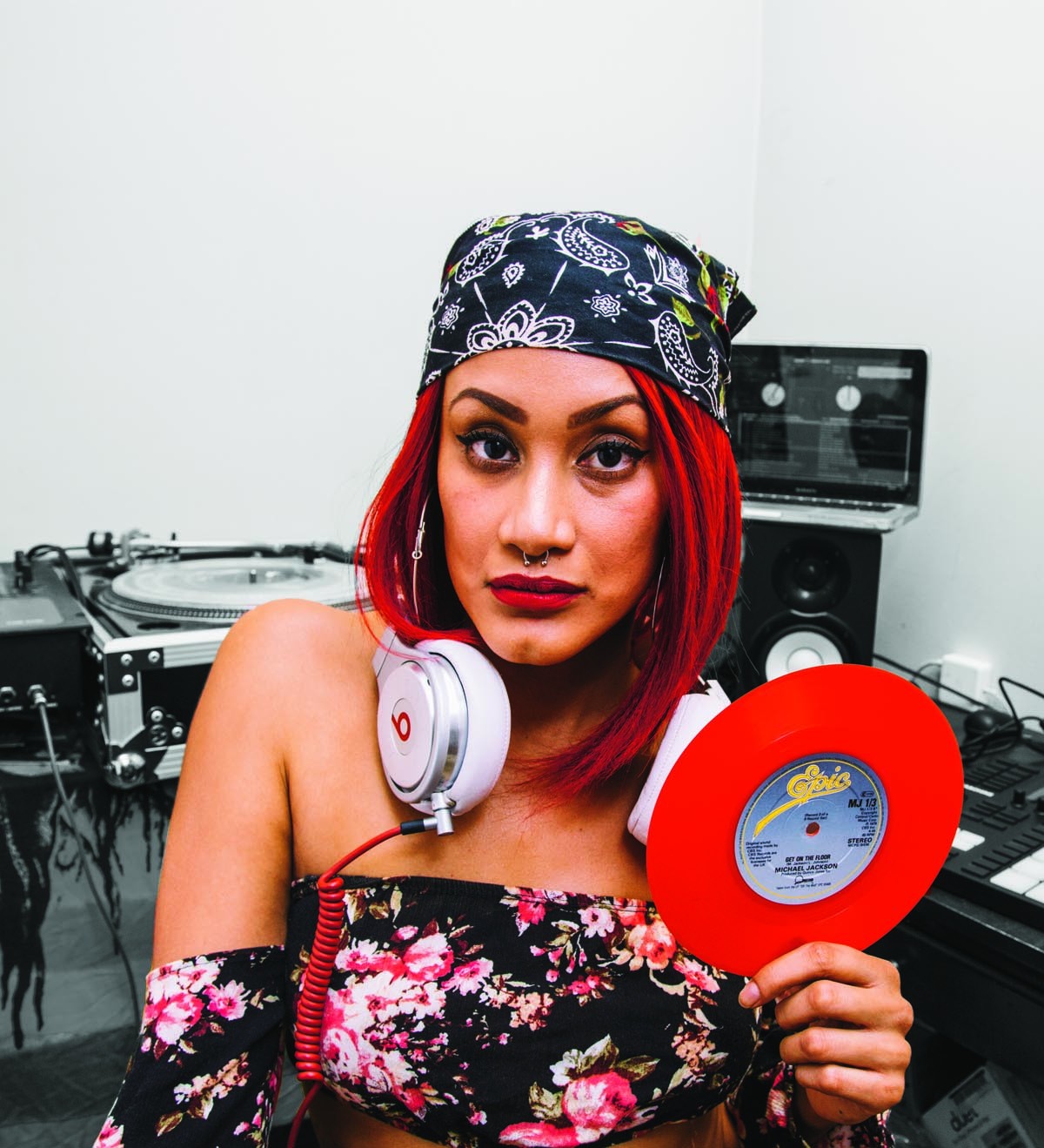
East of Dodger Stadium, Los Angeles’ Airliner nightclub is filled with somber fans drinking by the bar in their blue crew apparel. Fhanet Rubio, a black bandanna covering her head save for the shoulder-length cherry-red locks that frame her face and match her lipstick, takes over the turntables just after midnight. She tries to cheer up the crowd. “What’s up, Los Angeles?!” Rubio says. “You win some, you lose some, but you’ve got to move on.”
Reverie jumps onstage to join her, admitting she may have had one too many drinks during the Dodgers’ World Series game 7 loss. Her black hair in a tightly wound ballerina bun, the underground rapper from Highland Park reps the baseball team on her jacket.
The Orange County DJ cues “Moonrockin,” a grinding, Tom Tom Club-sampling beat that gets the party going and alleviates the Dodger blues. Rubio displays her deft turntablism throughout the half-hour set. She skillfully scratches over boom-bap beats, attacking the crossfader with the frenzy of a manic violinist. And if hip-hop-heads in the crowd paid close attention, they saw her twirl around the turntables followed by a behind-the-back record scratch. When the DJ isn’t doing all that, she’s either leaning forward to monitor her MacBook Pro or twisting knobs on the mixer.
Even with Reverie’s infectious energy onstage, Rubio grabs the mic to hype the crowd. “Make some noise for my girl Reverie!” she commands. The heads demand more revelry. The rapper and her DJ quickly huddle onstage. “We got time for one more, right?” Reverie asks. The duo kicks into “Scheming.” Rubio takes her buoyancy to another level, hopping up and down and waving her hand in the air.
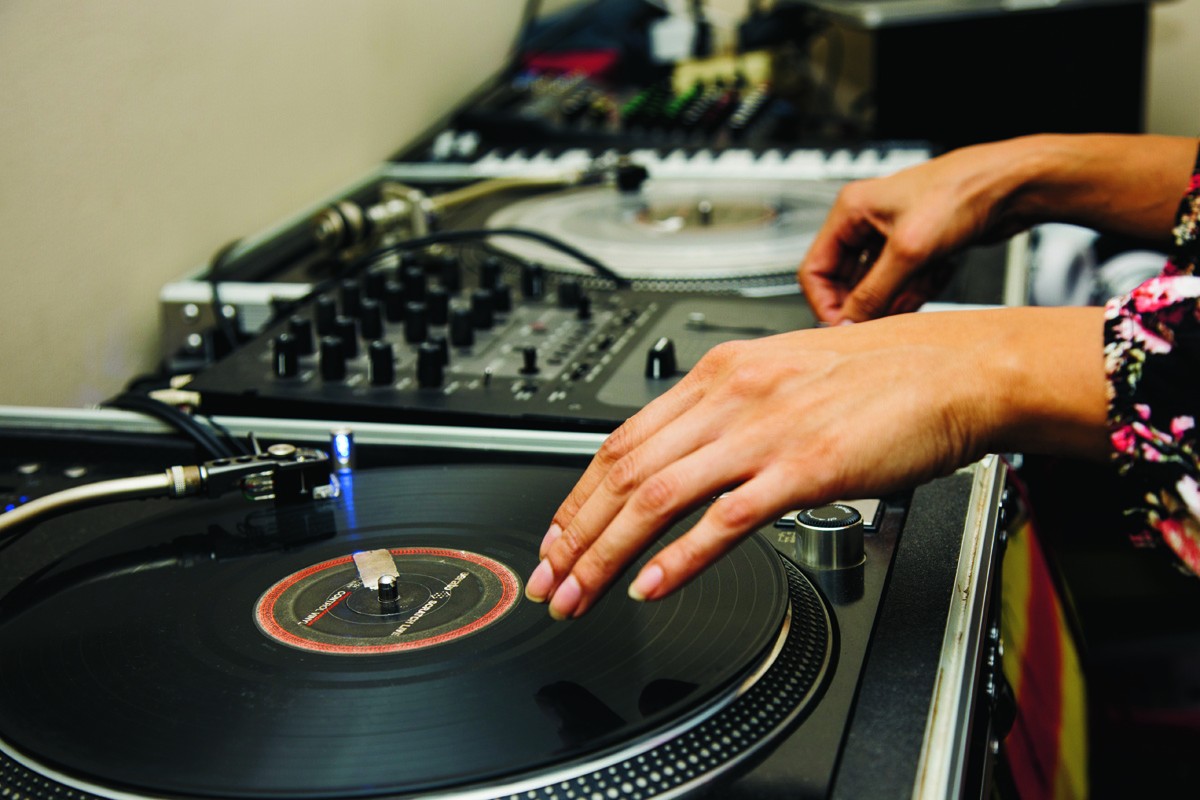
The walls vibrate. The floor rumbles. Fuck what you’ve heard: Hip-hop is far from dead.
The last song, with its boastful chorus of touring worldwide, is a fitting end to the warmup show. Reverie and Rubio head off to Europe again this month for a weeklong sojourn through Germany, Switzerland and France. It’s the latest accomplishment in Rubio’s improbable life as a DJ.
Just a decade ago, she hid from the world in her Costa Mesa bedroom, mired in depression amid her mother’s losing battle with breast cancer. “All I wanted to do was sleep,” Rubio recalls. “It didn’t feel good to be alive. I just wanted to go back to sleep because when I was sleeping, I didn’t feel anything.”
She knows all too well that music is medicine, even for bummed-out Dodgers fans. Hours, days and months of practice on the turntables gave her the bravery to return to the outside world in the form of DJ Lala. Rubio began with humble residencies before life-changing opportunities quickly teamed her with legendary West Coast rapper Suga Free, then transformed her into an internationally touring DJ.
The whirlwind attracted documentary filmmakers to Rubio’s story. “When we first started filming her, she was extremely shy,” says Alexa Polar, director of the forthcoming Adventures to Lala Land. “Now, she completely confident.”
It’s an evolution powered by her mother’s memory. “I’m not afraid of death like I used to be,” Rubio says. “I’m really trying my best to accomplish everything that makes me happy here.”
* * * * *
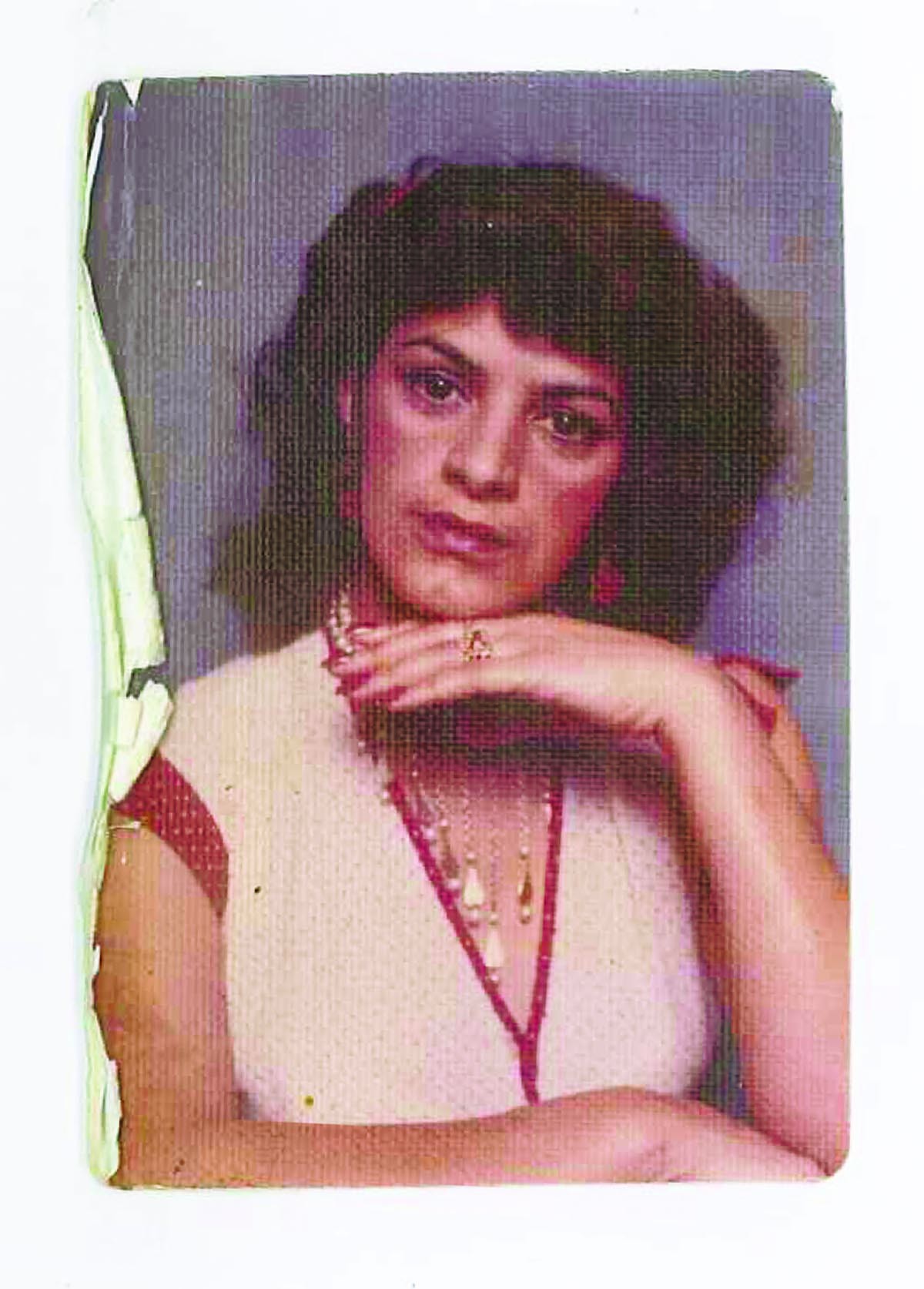
Long before taking over the world with her turntables, Rubio was her mother’s caretaker. When Imelda had a biopsy performed at Hoag Hospital in Newport Beach in 2008, Rubio could not deny the pain in her mother’s eyes. “I knew she was sick; I just didn’t know how serious it was,” Rubio says. “If I would have known, maybe there was something I could’ve done.”
Before Imelda’s illness, Rubio grew up in a normal, loving and musical household. Her parents met and wed on this side of the border after both emigrated from Mexico. Devout Catholics, they attended mass at St. Joachim Catholic Church in Costa Mesa. Jesus and Imelda sang in the church choir while raising a family of three.
But on that day at Hoag in 2008, Rubio’s quiet life as a sociable Orange Coast College student turned upside-down. She stopped going out dancing with friends and started isolating herself more in her room.
Doctors at St. Joseph Hospital in Orange concluded that Imelda’s cancer had spread too quickly and that no surgery could save her. They ordered chemotherapy and radiation treatments. “All that was killing her,” Rubio says. “That’s when everything went downhill fast.”
Rubio quit her coffee-shop job to spend more time by her mother’s side. When she wasn’t there, Rubio desperately researched alternative cures. One day, after chemotherapy treatments, Imelda sat in the bathtub of their Costa Mesa home. Frustrated at the clumps of hair falling off her scalp, she asked her daughter to cut it all off. “Maybe you should just wait and let it fall out on its own,” Rubio recalls suggesting.
[
“No, I just want you to cut it,” Imelda said, sobbing. Rubio obeyed her mother’s wishes. The memory of her bald mother in tears still cuts deep; Rubio smudges her eyeliner as she wipes away her own tears.
Rubio put on a much stronger face for her mother when tending to open wounds, staying on top of multiple medications and cooking healthy meals. But inside, she fell into depression.
In the midst of all the stress came a quiet moment of affirmation between mother and daughter. “One day, I did her nails,” Rubio says. Her mother started sobbing. She asked Imelda why she was crying. “Oh, I just feel so good right now that you’re here doing my nails,” she remembers her mother saying, then chuckling.
“Now, I look back,” Rubio says, “and she probably knew she was leaving and just appreciated the moment.”
When the cancer spread to Imelda’s brain, doctors sent her home for hospice care. As 2008 neared its end, so did Imelda’s life. Rubio’s cousin took her to a Barnes & Noble to give the constant caregiver a little break. Instead of perusing the self-help shelves for books on grieving, she picked up a beginner’s manual for DJs. It seemed an odd choice; though an avid hip-hop-head, Rubio had never had any interest in turntables before.
The book collected dust in Rubio’s room for weeks. She asked for wisdom by her mother’s bedside, not knowing when her last day would come. “How did you know when you found the one?” Rubio asked. “How will I know?” Imelda asked about her relationship instead. Later, Imelda started violently gasping for air, a sound that still haunts Rubio. She didn’t petition God for a miracle, only an end to her mother’s suffering. “I prayed for her to be at peace.”
Rubio’s grandparents flew in from Mexico and arrived in time to bid farewell to their daughter.
“No puedo,” Imelda had said in Spanish, finally giving up her will to live. “Ya, no puedo.”
Imelda Rubio died at the age of 55 on Jan. 11, 2009.
* * * * *
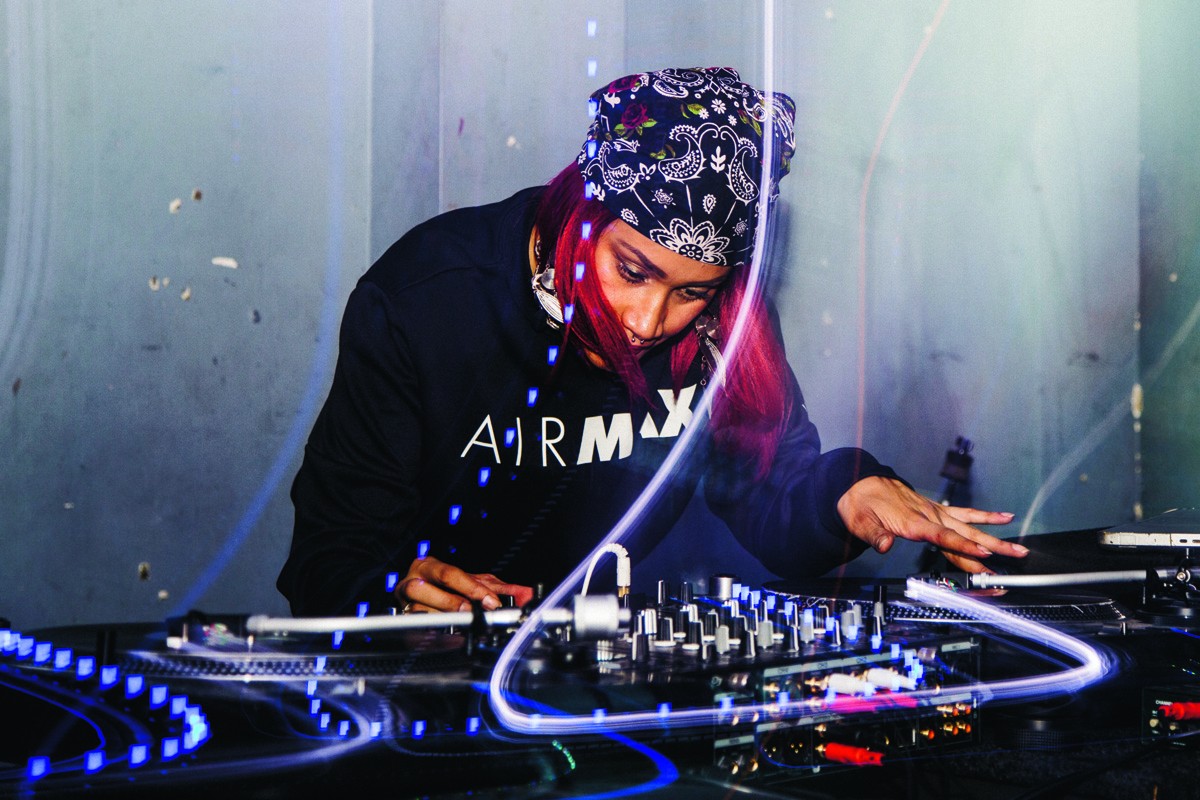
“The day after my mother passed, I felt like a zombie,” Rubio recalls. She coped the only way she knew how, by staying in her room and trying to sleep it all away. Rubio’s cousin urged her to get out of Costa Mesa and spend two weeks in her mother’s hometown in Michoacán to cleanse her sorrowful heart. But before leaving, Rubio spent whatever money she had left buying a Technics turntable on impulse. She didn’t give much thought to being a DJ or consider that the turntable would turn her life around; she just wanted it to play records in her living room.
The turntable arrived while she was in Mexico and waited inside its box. Once Rubio returned, she dusted off the beginner’s book she had bought so that she could learn how to hook it up. But she soon became curious about deejaying. Being from a musical family, Rubio borrowed her brother’s used mixer and took a speaker from her dad’s PA system. She connected an iPod through the auxiliary cable and tried to beatmatch with her sole turntable.
Slowly, Rubio began spending less time oversleeping and more time practicing her new hobby. “I trained my mind to not think about my mom,” she says. “My mind wasn’t going back to the good times; my mind kept going back to flashes of her agony.”
Rubio saved up and bought a second turntable, but she wondered if all the self-taught practice made perfect. Eduardo Iniestra, a Costa Mesa DJ known as Kaboom, paid her a visit to evaluate her progress. “Yeah, you got it!” Iniestra said. “You’re beatmatching on the right time. You just have to practice more.”
And so she did.
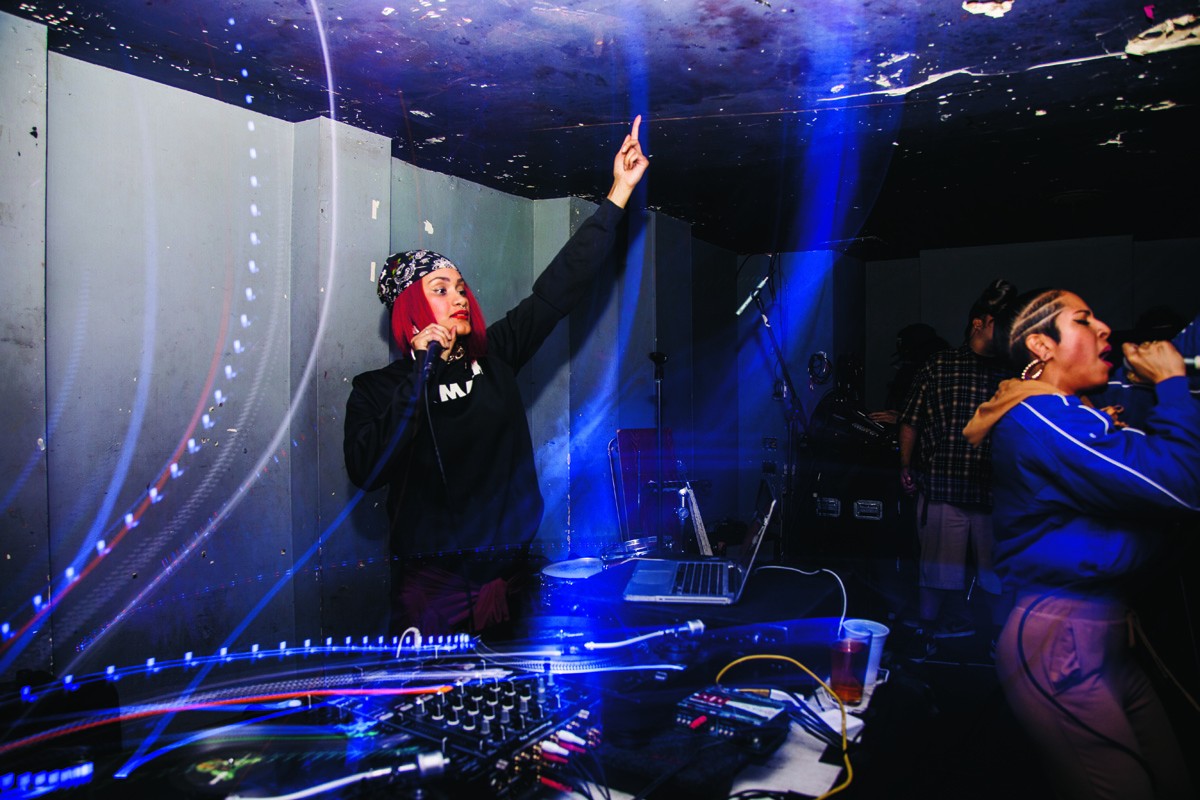
Rubio spent eight hours every day for months trying to perfect her nascent skills with different records. After spending nearly a year in the cocoon of her room, Rubio began going out with her friends again and even started picking up hours as a caregiver. She also accepted an invitation to spin at a backyard party—her first DJ gig. “I did good!” Rubio says. “Who knows? I don’t even remember!” What comes more easily to memory is the smile on partygoers’ faces when they heard their songs play.
After a girl’s night out at Malone’s Bar in Santa Ana, Rubio’s longtime friends, dubbed the “Boss Laydeez,” spoke with promoter Carlos “DJ Droops” Cerda without telling her. He had started the hip-hop series Sundays OC at the bar, and agreed to bring her on the following Sunday. “I wasn’t ready at all,” Rubio recalls. She felt panicked, but everything went fine that night. She transformed into “DJ Lala,” using a longtime nickname gifted by friends for her spacey drifts into “Lala land.”
[
“Everybody loved her,” Cerda says. “She knew the perfect songs to mix.” Cerda asked her to start a residency afterward, an opportunity that brought forth an even bigger one.
A few weeks in, rapper Infra Redd approached Rubio. “I’m DJ Quik’s nephew, and we’re looking for a female DJ,” he said, referring to the legendary West Coast rapper and producer. It all seemed surreal and too sudden. Rubio didn’t have a mixtape to hand out, but she passed along her contact information. “That’s how it all started,” she says, “and from then on, I moved fast.”
* * * * *
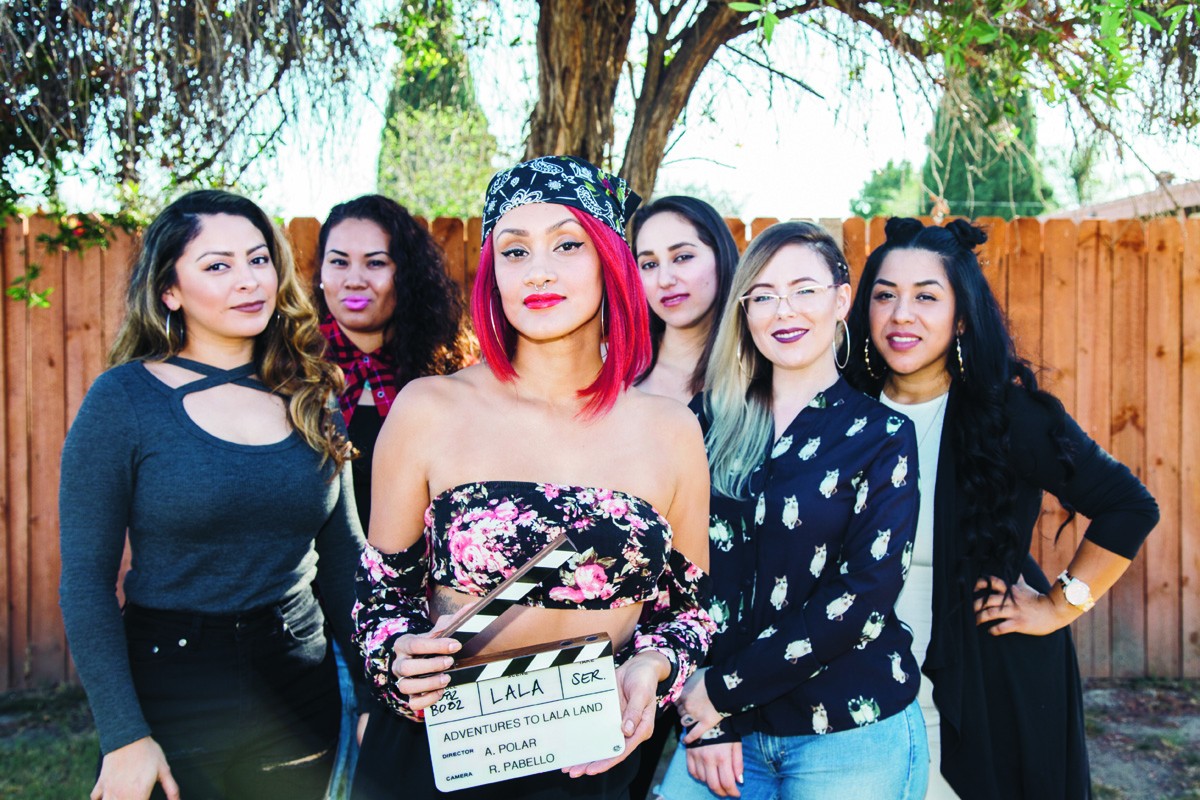
A manager arrived at Rubio’s home with a portfolio showing all the luxuries that awaited if she signed a seven-year contract: lofty hotel accommodations, exciting event opportunities, big paydays. The pitch man didn’t come from DJ Quik’s camp, but rather Playboy. DJ Rhiannon, a touring playmate, found Rubio on Facebook and then introduced everybody.
Of course, there was a catch. “The way we promote is through sex,” the manager said during the meeting. “You would have to pose for Playboy just one time so that you can have the title of Playmate DJ. From there, the bookings are based on that.”
Rubio appreciated both his professionalism and upfront approach. She thought it over for about a week. “I wrestled with my morals,” Rubio says. “I kept thinking about my mom and what she would have thought.” She politely turned down the offer, an uneasy decision on all accounts. “I just couldn’t bear the thought of posing for Playboy,” Rubio says. But the experience left her sure that she had something to offer the music industry that it wanted.
Ted Theus, rapper Suga Free’s manager, followed through for Infra Redd and called Rubio soon after she turned down Playboy‘s offer. He had a gig to back Suga Free for a Spring Break show in Lake Havasu. She took the deal without hesitation.
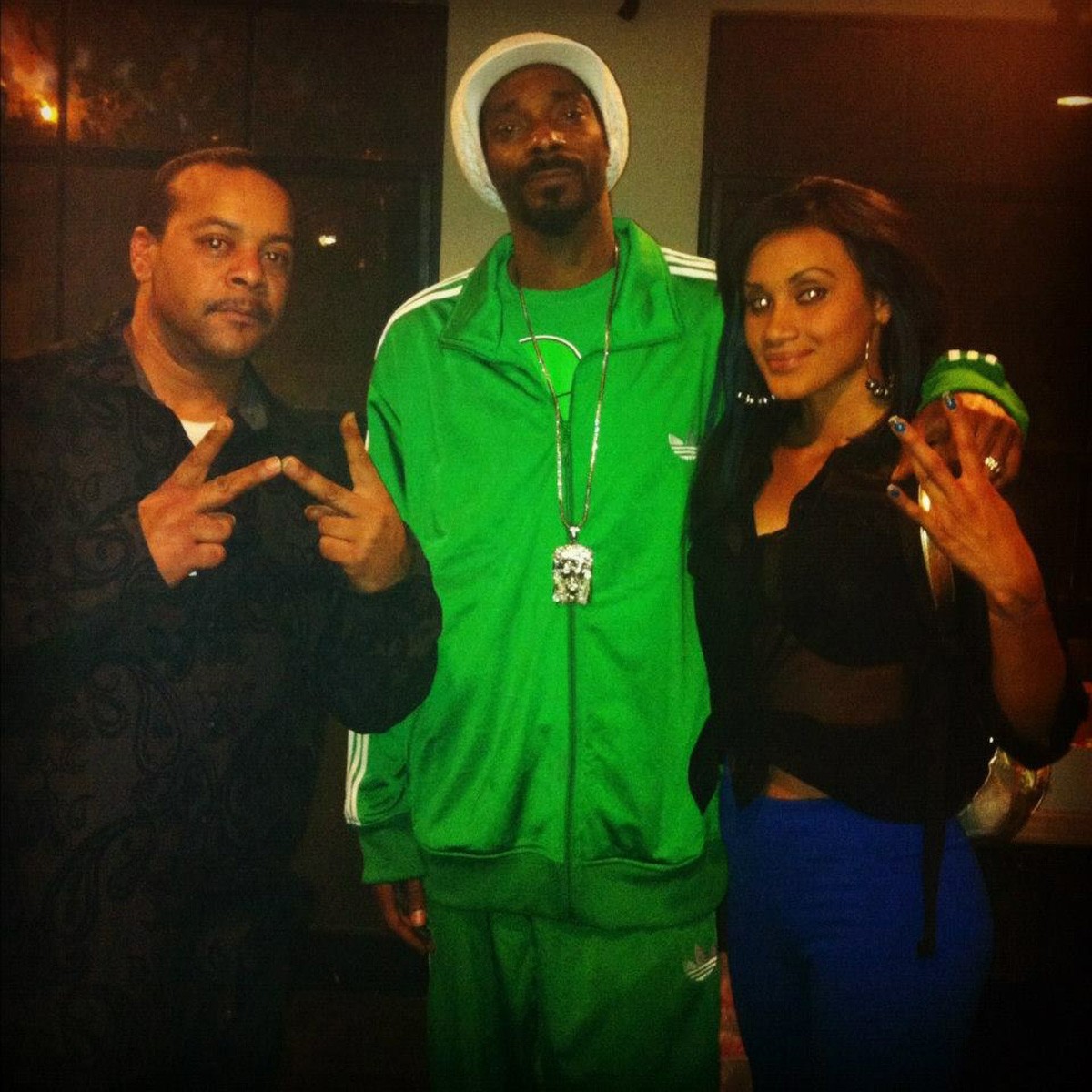
While fans awaited the lakeside club show, Rubio thought of every possible thing that could go wrong. She needed to buy time onstage while Suga Free mingled with the crowd and decided to spin some Nate Dogg records in remembrance of the late singer. “DJ La-la! DJ La-la!” they chanted. She wondered how they even knew her name. After Suga Free ended his show, he called out to her: “You’re the fucking shit, La!”
The Lake Havasu gig led to a slew of shows. In 2013, Suga Free and Rubio played Paid Dues, a major hip-hop festival held that year in San Bernardino. The oppressive sun caused a bit of chaos. Stuck in festival traffic, Suga Free barely made it to the outdoor amphitheater surrounded by chaparral-covered hills five minutes before stage time. Rubio wandered the grounds until finding the stage she needed to be at. While the confusion may have rattled her before, she remained poised this time. To end the set, Rubio cued the DJ Quik bass-heavy beat for “Why U Bullshittin'”; the crowd roared in approval.
Rubio lived a double life during her years-long run with Suga Free. She kept her day job teaching preschool in OC while backing a pimp rapper at night. One afternoon, Suga Free called her on short notice to ask if she wanted to DJ for him with Snoop Dogg at the Fox Theater in Pomona. Still wearing pajamas, Rubio quickly changed clothes and darted out the door, barely making it to the venue in time. Backstage, Snoop Dogg rolled blunts while bumping rancheras. When show time came, Rubio rocked the crowd with a stage full of G-funk legends.
The duo shared a sibling-like relationship on the road. Rubio finally told him about how she became a DJ after losing her mother to cancer. When the rapper’s mother died, Rubio understood his grief all too well. The two amicably parted ways in 2014.
Even though there’s demand for Suga Free across the continent, he had found it difficult to book shows in Europe, a place Imelda told her daughter she wished she had visited. “I wanted to give myself a new goal to accomplish,” Rubio says. “My main goal was Europe because that was what my mom wanted to do.”
* * * * *
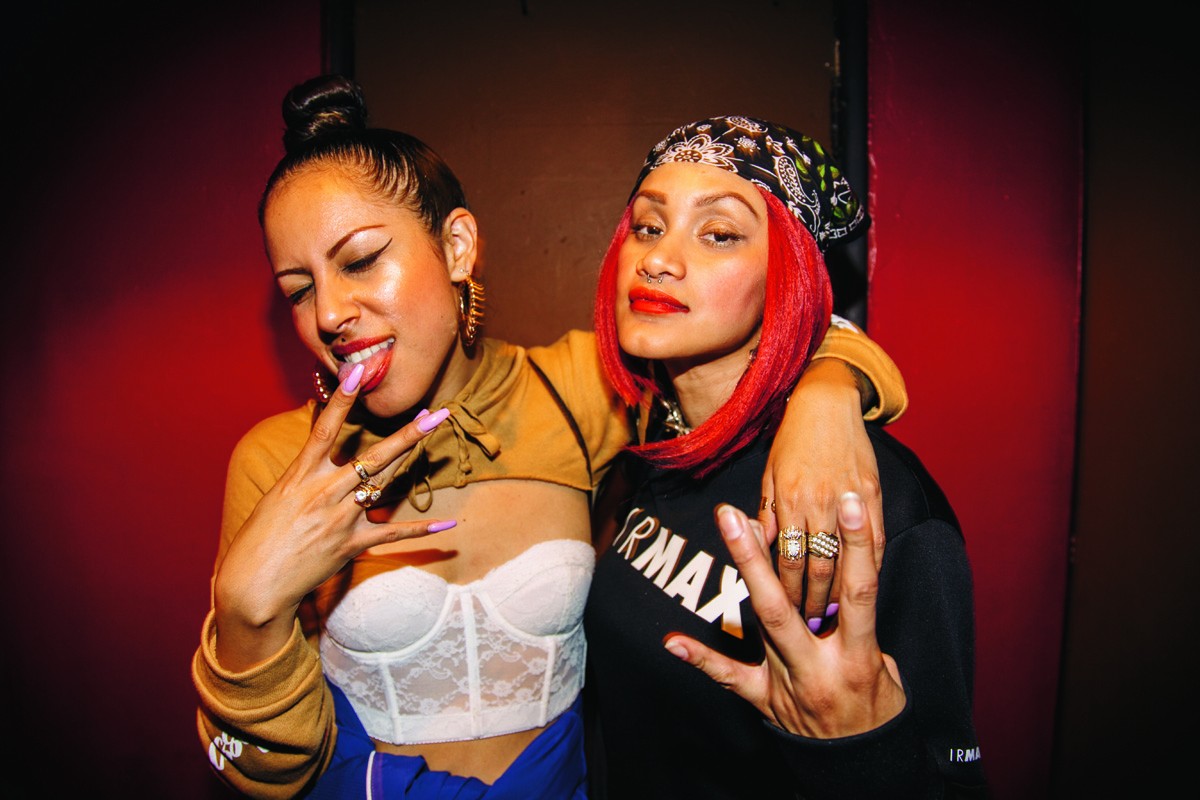
Rubio saved up enough money to travel to Italy at the invitation of fellow members of the worldwide Battleholics breakdancing crew, but before leaving, she found a new rapper with whom to work. Reverie, who’s known for her notebook-confessional rhymes, first met Rubio at the Whisky a Go Go after she spun for Suga Free and became intrigued. “We got to know each other and how we grew up,” Rubio says. They played a show in Southern California before meeting again overseas in 2015 to rock the Hip Hop Kemp festival in Hradec Králové, Czech Republic. When they came back Stateside, Reverie asked Rubio to be her DJ.
[
While Rubio often found herself the lone woman in Suga Free’s entourage in the European tours that have dominated her career the past two years, she has helped to form a hip-hop sisterhood. “We have a commitment to our movement and to one another,” Reverie says. “We’re both Chicana women from Southern California, and that really inspires people in a way that I didn’t even think of when I really wanted to start working with her.”
The duo traveled to Europe last year with fellow rapper Gavlyn and photographer Enkrypt for a tour booked by manager Rita G—all women.
European audiences also gave Rubio enough anonymity to shore up her skills. Rita G suggested she needed to get on the mic more and liven up the crowd, something Rubio now does with ease. But no matter how skillful a DJ she became, the same old sexism followed her. “When I do sound check, men don’t think I know what an XLR cord is,” Rubio says. “If I’m with Reverie, it happens more often.”
Others think she’s coming up to request a song, but then they ask for selfies after the show. “We just try to laugh at it most of the time,” Reverie says. “We’re changing the game.”
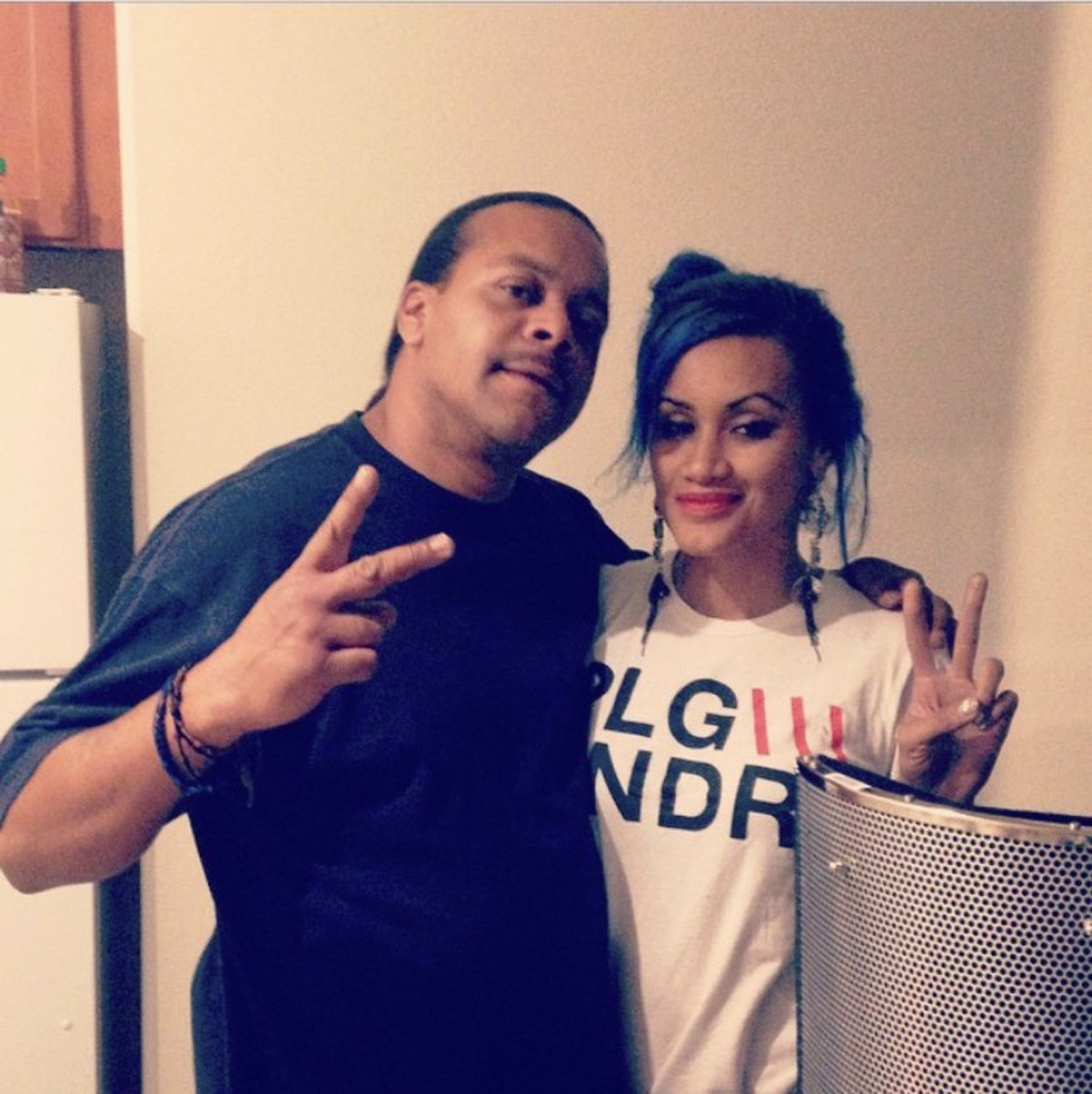
Rubio began spending more time abroad than in OC. She quit her preschool job in 2015, the same year she fell in love with Orange Beat, a Sicilian beatbox champion who lived in London. The two moved to Sicily for a few months before deciding to come back to OC. They wed this January, answering the question Rubio asked her mother years ago about “the one.”
Even across oceans, Rubio carried Imelda’s memory close to her heart. After the first time she earned Euros for a gig, she bought herself a glass of wine at a local bar in Sicily. The achievement also prompted a private tribute to her mom. “I went to a nearby cathedral, or Duomo, as it’s called in Italy, afterward,” Rubio recalls. Imelda’s church-centered life made the stop an appropriate one. “I made it here for you,” Rubio said in quiet prayer from the pews.
She makes it a point to visit a church whenever traveling abroad, a small ritual in honor of Imelda. “Hopefully, my mother’s proud of me,” Rubio says. “That’s all I can ever hope for.”
* * * * *
The Girl From LaLa Land from DJ LaLa on Vimeo.
Kathy Dang holds a slate reading, “Adventures to Lala Land.” On this busy Saturday morning at Rubio’s home, Polar sits next to a camera perched on a Benro tripod.
The documentary began more than four years ago, but it’s now just a few shoots away from wrapping up and going into post-production. Rubio started watching documentaries on food systems and Big Pharma during her mother’s illness before pondering a project centered on her own life. The journey began with a short-film side project, The Girl from Lala Land. “I wanted to create a story where I was able to tell it through music,” Rubio says. “I was telling the story through my scratching.”
The short dramatized the death of her mother and her emergence from the depression that followed with hip-hop culture on full display. “We didn’t want to tread too much on her creativity,” says Adventures to Lala Land producer Robin Pabello. “She was so ecstatic to see something come to fruition that she came up with from beginning to end.”
When Rubio posted on social media she was looking for filmmakers, OC graffiti artist Kenos One responded and connected her with his sister, Alexa. “She loved the fact that we were women and from Orange County,” Polar says of Westminster-based Butterfly Angel Entertainment.
At this Saturday shoot, Polar begins interviewing the DJ’s longtime gal pals, the Boss Laydeez. “I take it as an honor to be her friend,” says Jess, one of the Laydeez. “I’ve known her since second grade. I always knew she was going to be something.”
Rubio’s friends dish on her career and marriage while piling on the platitudes. “I’ve seen shy Lala back in the day—to now she’s grabbing the mic,” says rapper Sage One. He first met her through DJ Kaboom during their days at Costa Mesa’s Save Our Youth center. “Her greatness came from pain,” he adds. “It’s a great underdog story.” When it’s Sage One’s turn to go before the cameras, he flashes a big grin.
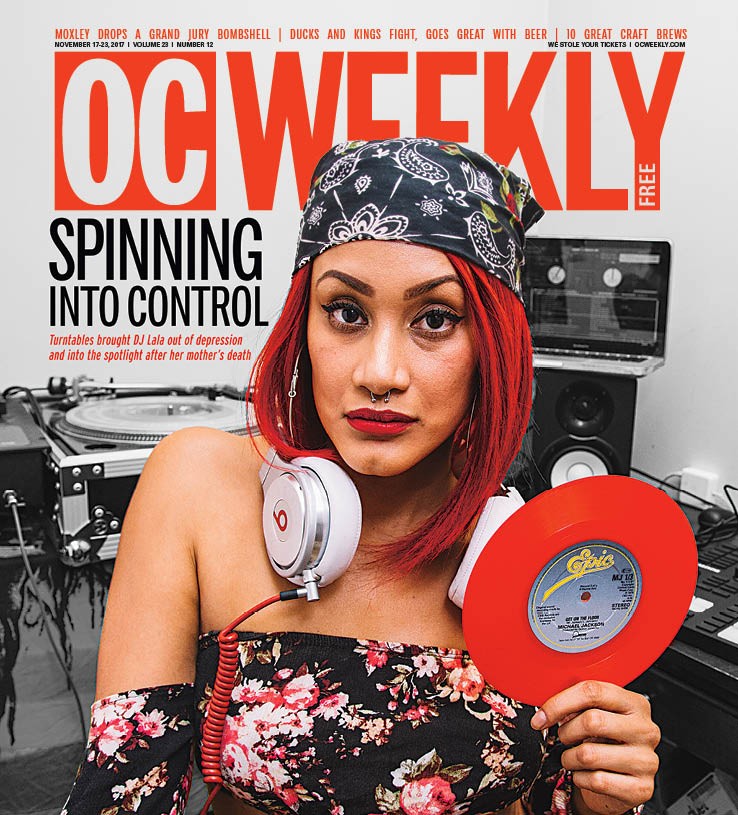
When Polar talked with Rubio about her mother’s death, it took more than a few takes for the DJ to open up. “I don’t think she fully understands it yet completely, but she battled with thoughts of suicide,” Polar says.
The feature-length documentary is set to debut next year, and reality television producers are already interested in a spin-off.
But whatever comes next, Rubio now is every bit a bon vivant. She gathers her Boss Laydeez for a round of shots between takes. “Let’s smell Lala’s shot and make sure it’s not water!” one jokes. They share a laugh before downing the vodka.
[
After the film shoot wraps up for the day, Rubio retreats to her bedroom, but now it’s to spin records for her friends on the turntables she bought after her mother’s death. A framed picture of Imelda sits by her bedside.
“Really, what I learned from losing my mom is that there’s no guaranteed time,” Rubio says. “It’s up to me to make my life how I want to make it.”
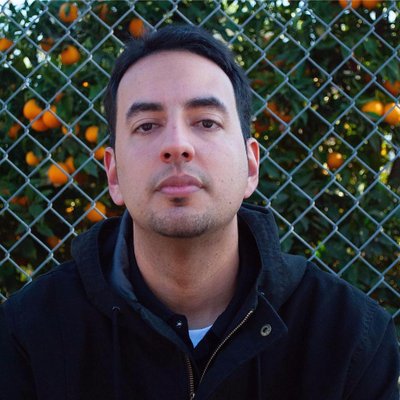
Gabriel San Román is from Anacrime. He’s a journalist, subversive historian and the tallest Mexican in OC. He also once stood falsely accused of writing articles on Turkish politics in exchange for free food from DönerG’s!


Way to overcome adversity- very inspiring!
Covering the latest beauty and fashion trends, relationship advice, wellness tips and more. https://gliz.us/